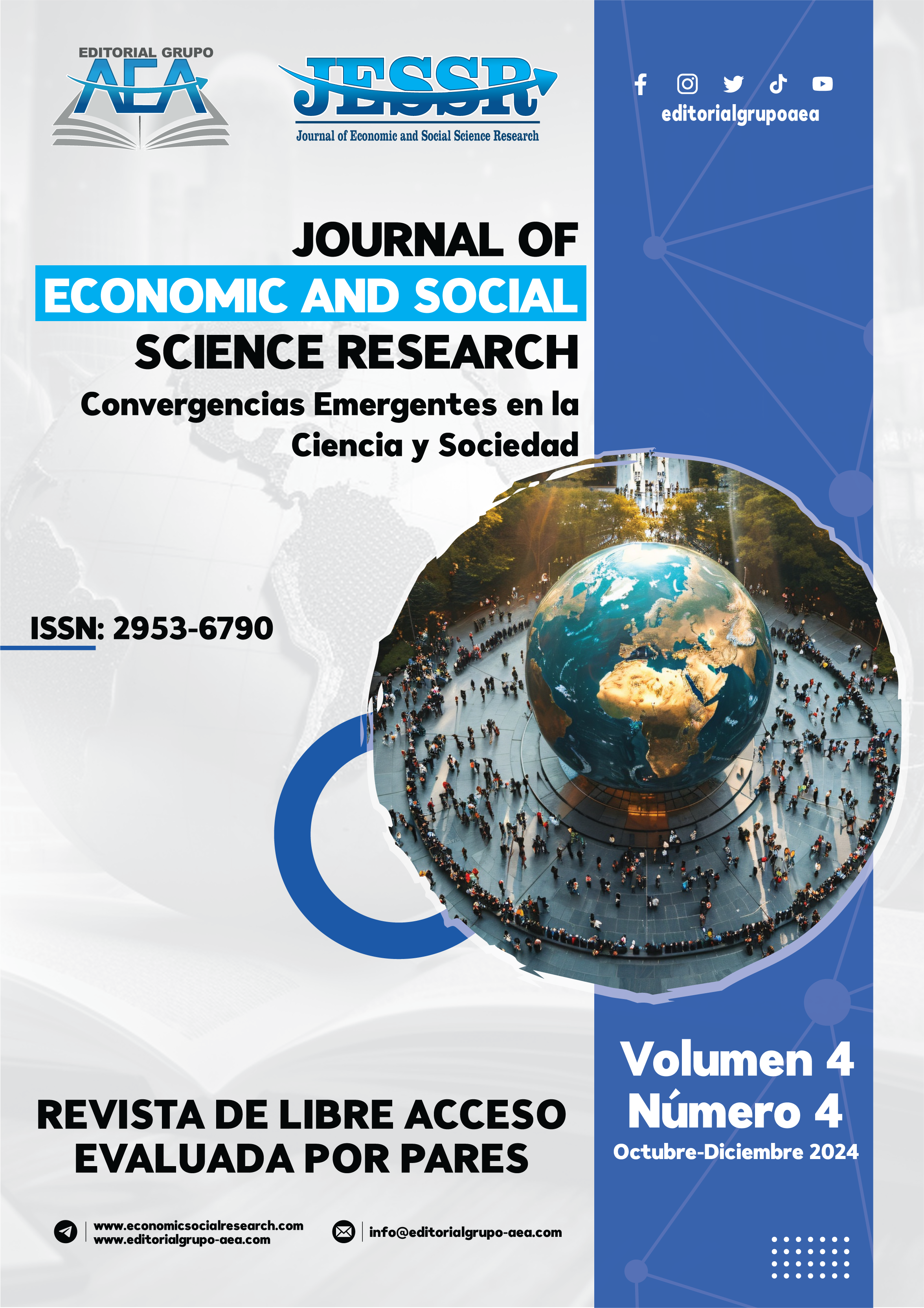Use of artificial intelligence in scientific research processes by university professors
Main Article Content
Abstract
Artificial Intelligence (AI) allows to improve and innovate the topics of higher education through the use of different technological tools, mainly in scientific research topics. The purpose of this research is to know if university teachers use Artificial Intelligence in scientific research processes. This study was carried out under a mixed methodological approach, at a descriptive, transversal and non-experimental level, for the field research a survey was used as an instrument applied to a sample of 219 teachers from a population of 510 teachers from different faculties of the Escuela Superior Politécnica de Chimborazo; and a bibliographic and documentary review was conducted in relation to the topic of AI. The findings identified explain that 84% of ESPOCH teachers are engaged in scientific research, through the preparation of essays, scientific articles and books, there is an equal participation among teachers who use AI in research processes and an additional 72% believe that artificial intelligence can improve the quality of academic and scientific texts written by teachers. Therefore, according to the study applied to the professors of the different faculties and careers of the educational institution, at present they make use of the technological tool such as Artificial Intelligence in the processes of research and academic writing, this helps to better develop the research processes, achieve better results and quality in their work.
Downloads
Article Details
Section

This work is licensed under a Creative Commons Attribution-NonCommercial 4.0 International License.
How to Cite
References
Acosta, L. A., Becerra, F. A., & Jaramillo, D. (2017). Sistema de Información Estratégica para la Gestión Universitaria en la Universidad de Otavalo, Ecuador. Formación Universitaria, 10 (2), 103-112.
Benjamins, R., & Salazar, I. (2020). El mito del algoritmo. Cuentos y cuentas de la Inteligencia artificial. Ediciones Anaya Multimedia. https://bit.ly/3QfzhwR
Bernal, C. (2016). Metodología de la Investigación: Administración, economía, humanidades y ciencias sociales. 4ª. Edición, Bogotá: Pearson Educación.
Burgos, L. (2016). La investigación contable un aporte predictivo para las finanzas empresariales: competencias y razonabilidad para su tratamiento. Revista Caribeña de Ciencias Sociales.
Chávez-Rodríguez, C. (2020). Modelo de Promoción de la Investigación del Vicerrectorado de Investigación PUCP. III Congreso Nacional de Gestión de la Investigación. Lima, Perú.
Cuchca, E. M., & Trujillo, B. P. (01 de septiembre de 2021). Enfoque Cualitativo y Cuantitativo de la Evaluación Formativa. Scielo, pp. 60-70.
Eaton, E., Koenig, S., Schulz, C., Maurelli, F., Lee, J., Eckroth, J., Crowley, M., RIED
Freedman, R. G., Cardona, R. E., Machado, T., y Williams, T. (2018). Blue Sky Ideas in Artificial Intelligence Education from the EAAI 2017 New and Future AI Educator Program. AI Matter, 3(4), 23-3.
Hernández, R. V. (28 de noviembre de 2021). La enseñanza de la estadística para la investigación: algunas recomendaciones reflexionadas desde la praxis. Scielo, p. 87-95.
Lara, E. (2018). Fundamentos de investigación. Bogotá: Alfaomega.
León, G. C., y Viña, S. M. (2017). La inteligencia artificial en la educación superior. Oportunidades y Amenazas. INNOVA Research Journal, 2(8), 412-422.
Monteza-Arbulú, C. (2020). Modelo de gestión de la investigación y nivel de desarrollo de la investigación universitaria. UCV-Hacer. Revista de Investigación y Cultura, 3 (2).
Matas, A. (2018). Diseño del formato de escalas tipo Likert: Un estado de la cuestión. Revista Electrónica de Investigacion Educativa, 20(1), 38-47.
Obregón González, L. A. (2023). El impacto de la inteligencia artificial en el ambito educativo. Obtenido de https://doi.org/10.23857/fipcaec.v8i3
Ocaña-Fernández, L. A.-F.-A. (04 de Mayo-Agosto de 2019). Inteligencia artificial y sus implicaciones en la educación superior. Propósitosy Representaciones, 7(2), 536-568. doi:http://dx.doi.org/10.20511/pyr2019.v7n2.274
Rodríguez, J. (2020). La preparación científico-investigativa en la formación docente de carreras pedagógicas: lineamientos curriculares y su relevancia en la producción científica. Revista Estudios del Desarrollo Social: Cuba y América Latina, 8
Stuart Russell, P. N. (2021). Artificial Intelligence: A Modern Approach (Vol. 4). Pearson Education. Obtenido de https://dl.ebooksworld.ir/books/Artificial.Intelligence.A.Modern.Approach.4th.Edition.Peter.Norvig.%20Stuart.Russell.Pearson.9780134610993.EBooksWorld.ir.pdf
Suárez, W., & Díaz, J. (2020). Gestión de la investigación en la universidad pública venezolana. Telos. Revista de Estudios Interdisciplinarios En Ciencias Sociales, 16 (1), 135-156.
Vara-Horna, A. (2012). La Idea hasta la sustentación: Siete pasos para una tesis exitosa. Un método efectivo para las ciencias empresariales. San Martín de Porres. Lima: Instituto de Investigación de la Facultad de Ciencias.
Vivar, J. M. F., & Peñalvo, F. J. G. (2023). Reflexiones sobre la ética, potencialidades y retos de la Inteligencia Artificial en el marco de la Educación de Calidad (ODS4). Comunicar: Revista científica de comunicación y educación, (74), 37-47.
Williams, R., Won, H., Oh, L., y Breazeal, C. (2019). PopBots: Designing an Artificial Intelligence Curriculum for Early Childhood Education [Conference Paper]. The Ninth Symposium on Educational Advances in Artificial Intelligence (EAAI-19), Honolulu, USA.
Yann LeCun, Y. B. (2015). Aprendizaje profundo. 1-7. Obtenido de https://es.scribd.com/doc/295974896/Aprendizaje-Profundo





